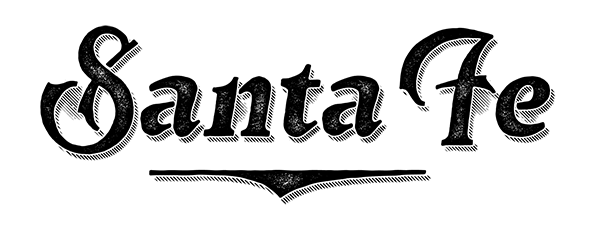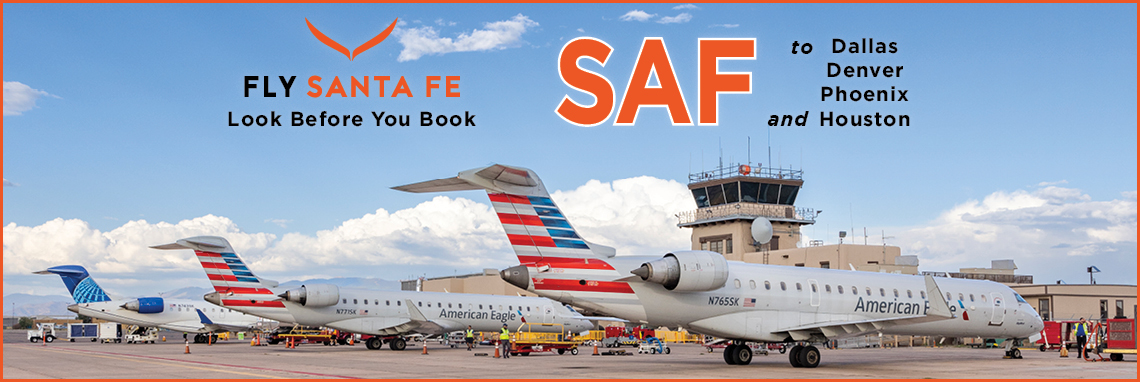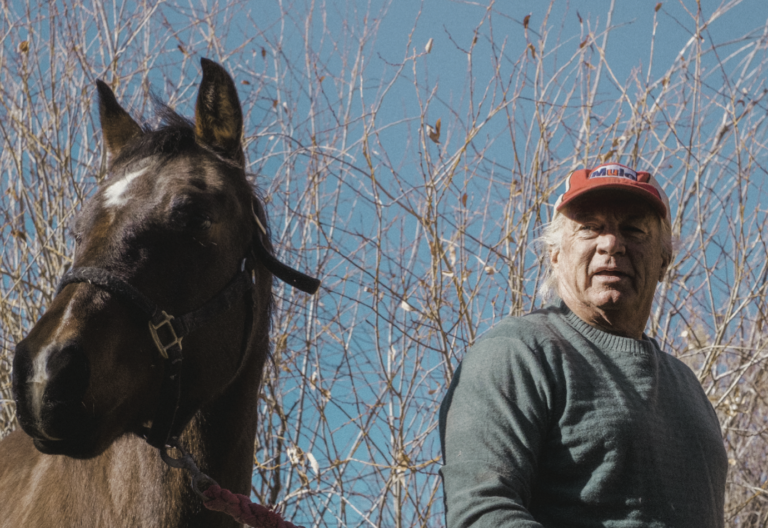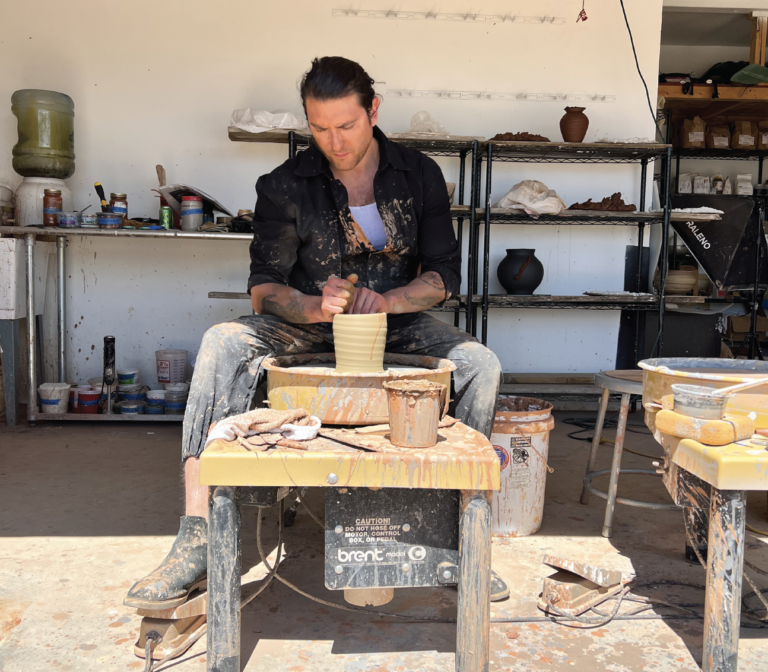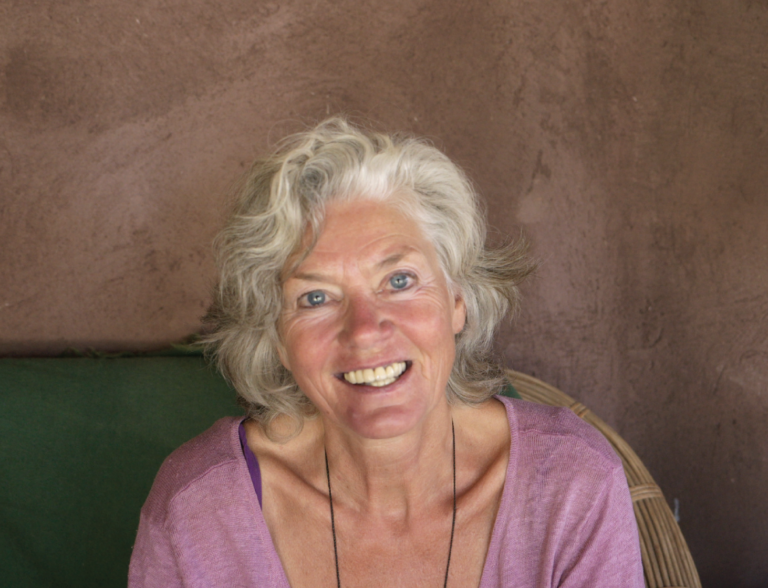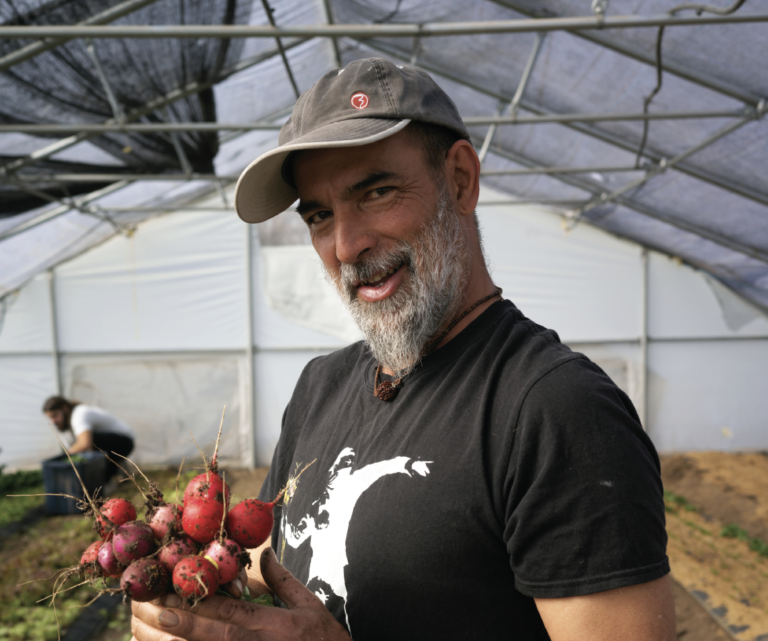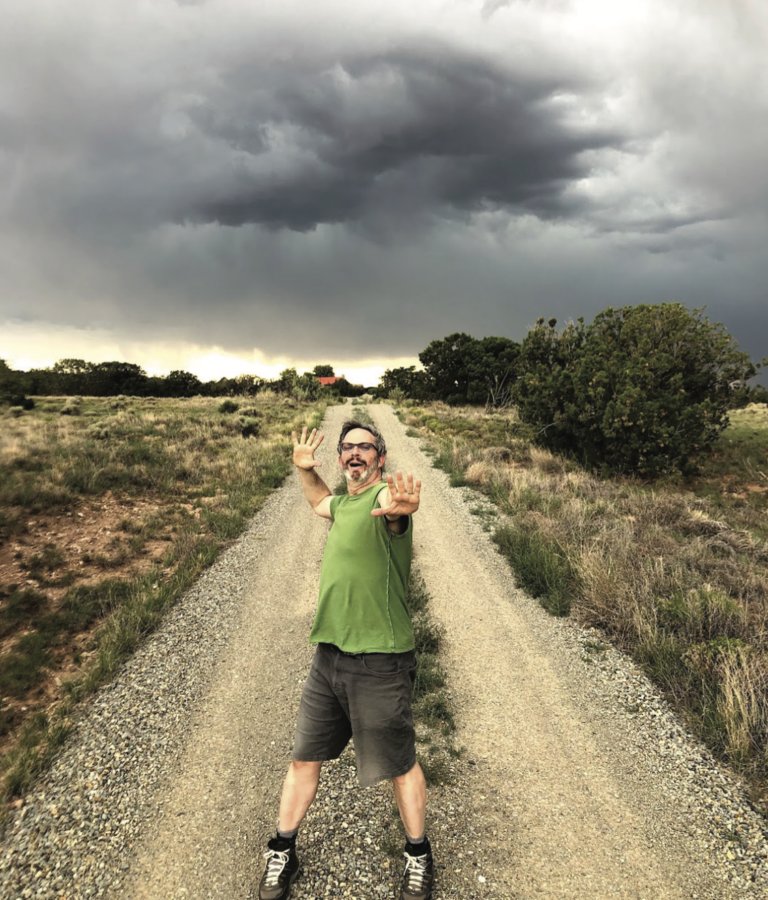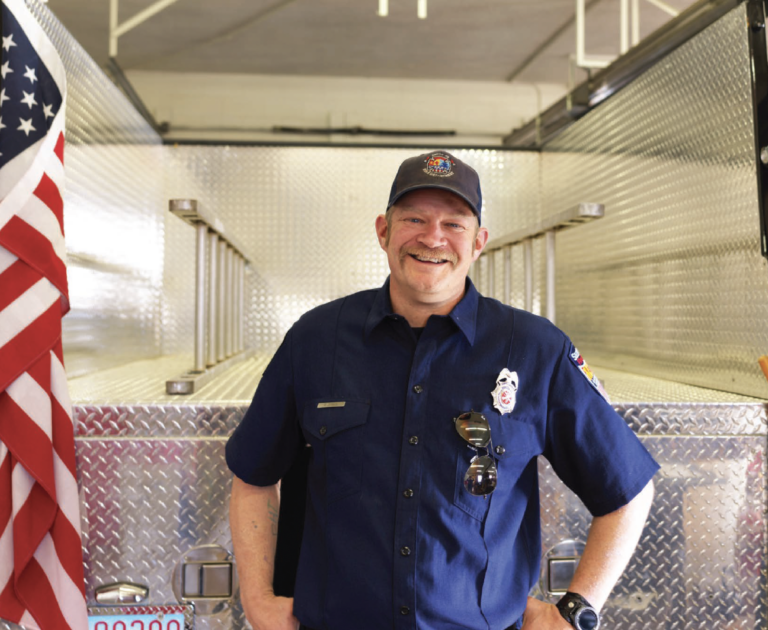FOR KATIE ARNOLD, ATTAINING FLOW – which she does through long-distance running – is her transport system to living the life she wants. She starts at dawn because it gives her something she knows to be valuable in a special, inexplicable way. Call it inner peace.
All her best thinking, writing, and perspective is informed by finding her way to flow.
I feel calmer just talking to her.
Running takes you to another place.
It’s always been more than running to me. I tapped into that really early; as a six-year-old, I saw that when I moved my body, I moved my mind. I was moving the stories from my imagination.
For me, the outside was a respite. It was a sanctuary. I had some complicated family dynamics. My parents divorced when I was very, very young. My mother remarried. I got a new stepfamily, and I think my proclivity for being outside became more pronounced in the wake of that.
I rode my bike around and around the neighborhood, making up elaborate stories in my head. It was then I knew that I wanted to be a writer.
Whether it was riding my bike or running through the woods, the stories flowed more easily when I moved my body. It was something about being outside in nature – the stories would move. It became this feedback loop.
In my adulthood, I’ve done longer and longer races, and the running is a way, quite frankly, just to get into the wilderness faster than walking. And it’s less technical and annoyingly gear-related than riding a bike.
You write about flow.
Flow is directly linked to movement. And letting go of preconceived notions and specific outcomes. Letting go of the goal and having the actual experience be the predominant, most important part.
The repetitive motion puts me in an almost trance-like state. I’m low data because that seems counter to flow. If I’m checking my watch and my pace and my heart rate, I’m not moving out of myself and into the wilderness.
I get in the flow, and I feel I’m receiving energy from the earth – I feel that it’s literally coming through my feet at the same time that the energy is coming down from the sky, meeting in me in this sort of alchemy. And my mind goes quiet.
So that’s ultimately what flow state is – you vanish and you become part of the thing you’re doing. I’m just a body running. I don’t mean that I’m just running as a verb – I’m running as the noun. I am running.
Where do you like to run?
My strength is going up mountains at altitude.
You have to know how to respond to the mountain, right? The mountain tells me the pace, and I love that because that’s a form of humility. Humility is one of the cornerstones of flow. To find that flow state is to show up at the mountain, humbled by it.
The mountain is so much more powerful than I am. The mountain’s older and has seen everything, and the mountain is the mountain. And I’m just one person climbing the mountain.
In our world of adventure sports, there’s so much language around crushing or conquering, and I’ve never had that relationship with wild places. It’s not about domination. I see that the mountains have energy to give me and that if I receive it, I’m going to be much stronger.
Does your body ever say I’m sick of running?
Yeah, sometimes.
Does flow ever not work for you?
What really kills the flow for me is social media. If you’re in a vulnerable or self-doubting place and you get on and you see a lot of runners or other writers posting things, suddenly it feels like a competition.
There’s something my tai chi teacher told me: You don’t try to beat someone. You try to become unbeatable, so you develop inner strength. And nothing drains that inner strength faster than five minutes on Instagram.
What other practices do you have that fit into this?
I’ve been doing zazen for 10 years. I started right after my father died, when I was engulfed in anxiety. It was a way to calm my anxiety, but it’s evolved so that it’s not just mindfulness – I’m really looking to zen as a guide.
For instance, this moment is as big as the universe. My dead father is in this moment, and so are my unborn granddaughters. I’ll sit with that, and then I’ll go run on the mountain.
Does your father talk to you?
After he died, he came to me a lot when I was running. I felt his presence when I would run. But, in running through my grief, I also found that what I thought was his voice was really my voice. There were moments that I would be like, I can’t keep going and he’d be like, You can. Keep going. And then I realized that that was me speaking. So it was like he showed me what I could do.
You chose to live in New Mexico.
I love New Mexico. I first moved here when I was 23, and it shouldn’t have made sense to me because I was from the East Coast, where it’s green, and here it’s so dry and dusty. But I knew I was home.
Here, it was this deep connection to the landscape and architecture. It felt so true; I could dispense of all the East Coast BS of how you look and what you do and who your family is. And just get to the essence of myself.
Have you learned things about the mountains and the trees here?
Always. I’ve run up the same mountain several times a week for 25 years, and I still notice different things. Or I’ll notice this squirrel darting up the tree, and I’ll think about all the other times I saw the squirrel in the tree. The run is the same mountain every day, but it’s never the same mountain.
Learn more at katiearnold.net
Photo SFM
